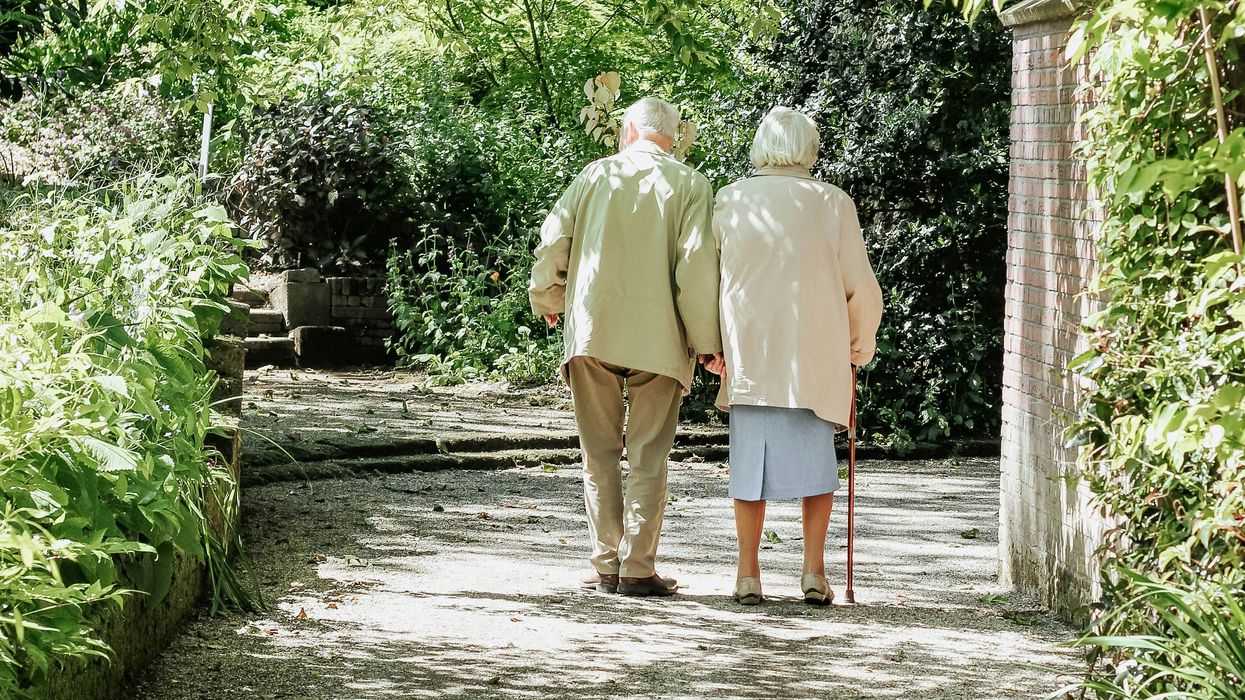Since 2023, 30.8% of King County households have reported speaking a foreign language other than English at home. The demographic shift indicates that residents aged 65 and older are projected to increase by 85% between 2020 and 2035, according to Age Friendly Seattle.
Among them, a growing number are immigrants with limited English proficiency, often isolated from digital tools and access to public services.
According to the National Institute of Health (NIH), over 25 million people in the United States are bilingual yet have limited English proficiency (LEP). When accessing healthcare services, limited communication between care providers and patients can lead to adverse outcomes, including risks to patient safety or even death.
On March 1, 2025, President Donald Trump issued Executive Order (EO) 14224, officially designating English as the U.S. national language — a historic first at the federal level and canceled EO 13166, signed by Clinton, which obliged federal agencies to offer language access for individuals with limited English proficiency (LEP).
While EO 14224 is not explicitly against multilingual services, it abolished longstanding laws and policies that ensure federal agencies work to eliminate discrimination against LEP individuals.
Roughly 13% of King County seniors have reported facing language barriers, often relying on family members or community centers to navigate basic to vital life tasks, such as making a doctor's appointment, ordering food, filling up gas, and asking for directions.
"The language barrier is one of the most critical issues for our older adult clients," said Meeran Sung, a case manager at the Korean Community Service Center (KCSC). "Older folks come to me for help in private matters like phone bills or apartment documents, but when it comes to government programs like food stamps or housing, it gets harder. I have to meet with them one-on-one, explain the programs in their language, and help them fill out applications."
Many immigrants who often relocate to be with their children face inevitable barriers to access as they "age abroad," which often exposes them to a high risk of dementia, social isolation, and a lack of culturally appropriate care.
"Many older adults say their children are too busy to help," Sung said. "We often hear about conflict between first-generation parents and second-generation children, especially when cultural differences or language barriers exist. Many older immigrants don't want to burden their children, so they avoid asking for help even when needed."
Language barriers also complicate life for families in the "sandwich generation," where adult children must juggle raising their own children while caring for aging parents.
"There are a lot of challenges for middle-aged folks who are both parenting and caregiving," said Grace Lee, a program coordinator at KCSC. "They feel responsible but often don't have the right resources or time to give their parents the care they need."
The United Nations Population Division Department of Economic and Social Affairs (DESA) reports that by 2050, one in six people globally will be over 65.
As the global aging issue grows louder, AI-based health tools have evolved into fascinating approaches to elderly care.
The demand for AI-powered community services that utilize AI to alleviate caretakers' burden and enhance their responsibilities has been increasing, ensuring seniors have access to all aspects of communal life without facing discrimination, isolation, abuse, or other forms of exploitation.
According to the NIH, AI-based health technologies can detect early warning signs of disease and offer personalized, prompt treatment plans based on precise data analysis.
For instance, an automated home safety wearable device, such as an Apple Watch, tracks and analyzes data from the user's vital signs and activity level, sending real-time alerts to designated family members or medical agents without human intervention when it detects something unusual based on the electronic health record.
Additionally, telehealth platforms are revolutionizing long-limited access to 1:1 doctor consultations for aging and younger populations in remote or underserved areas.
Lindsay Kim is an administrative officer, caseworker, legislative & research assistant, and freelance student journalist studying at the University of Washington.
Lindsay was a student in Hugo Balta's solutions journalism class. Balta is the Fulcrum's executive editor and the publisher of the Latino News Network. The Fulcrum is committed to nurturing the next generation of journalists. Learn more by clicking HERE.




















Trump & Hegseth gave Mark Kelly a huge 2028 gift